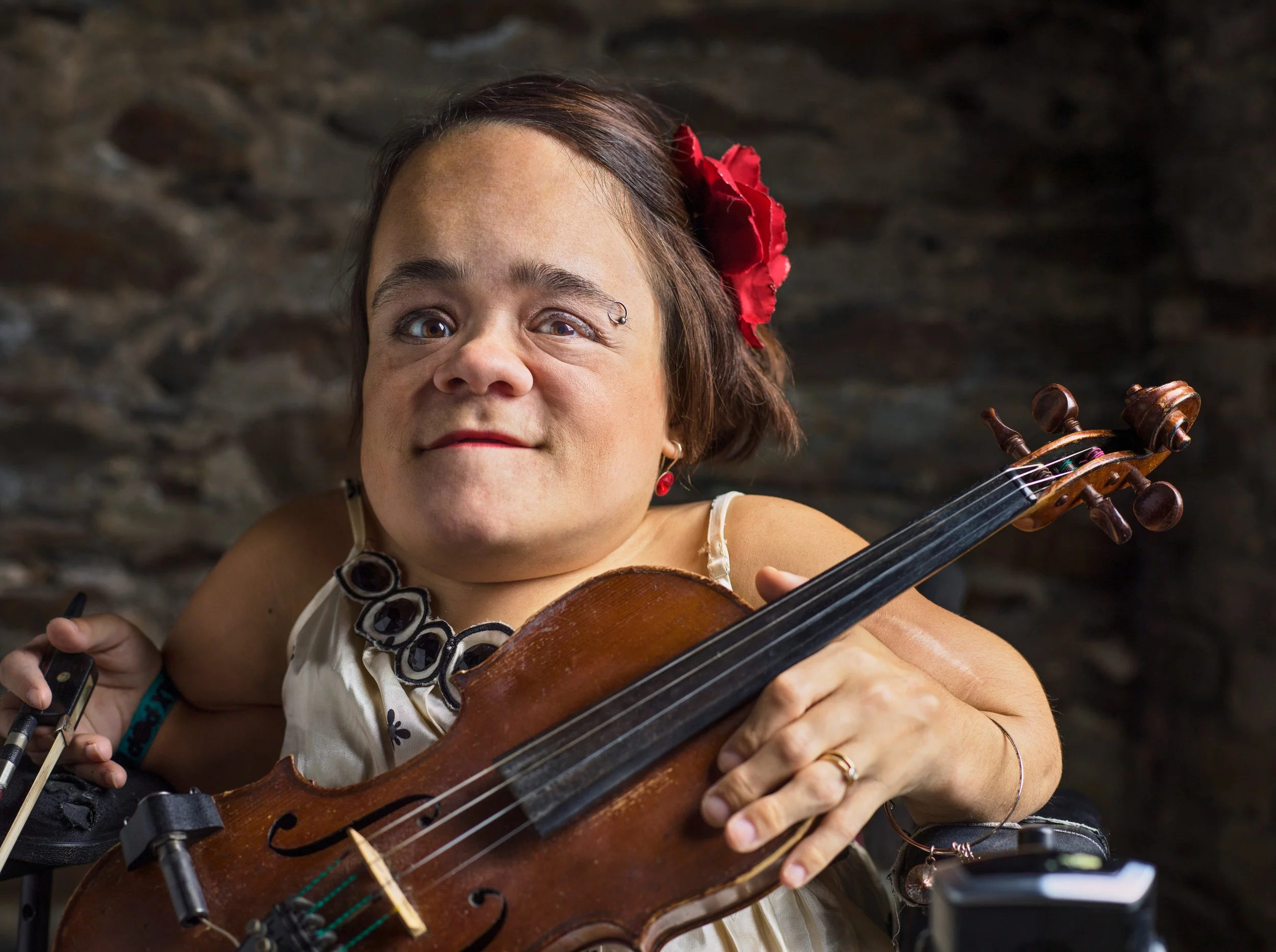Gaelynn Lea
photo credit: Paul Vienneau
Gaelynn Lea won NPR Music’s Tiny Desk Contest in 2016. Since then, she has captivated audiences around the world with her unique mix of haunting original songs and traditional fiddle tunes. Gaelynn Lea has opened for well-known bands such as Wilco, The Decemberists, LOW, and the industrial rock supergroup Pigface. Most recently, she composed the music for the Broadway production of Macbeth, starring Daniel Craig and Ruth Negga.
Gaelynn Lea is also a sought-after public speaker about Disability Rights, finding inner freedom, and accessibility in the arts. She has shared her perspective on PBS NewsHour, On Being with Krista Tippett, The Moth Radio Hour, NowThis, The Science of Happiness Podcast, and via two widely-viewed TEDx Talks. She is also one of the Co-Founders of RAMPD: Recording Artists and Music Professionals with Disabilities, whose mission is to amplify disability culture, promote inclusion & advocate for accessibility in the music industry.
Interview Transcription:
SPEAKERS
Molly Joyce, Gaelynn Lea
Molly Joyce 00:00
The first question is, what is resilience for you?
Gaelynn Lea 02:57
Resilience for me is just kind of the belief that the outcome isn't predetermined, you know, like, if you doesn't mean that you're guaranteed the outcome that you want, or that you know, for sure things are gonna go the way you want. But then it's worth continuing to try. Just because we don't know. There's no predetermined outcome. So I guess resilience is kind of like adapting, adapting your response to the world in a way that is students that the best is possible. That's my answer.
Molly Joyce 03:46
Next question is, what is isolation for you?
Gaelynn Lea 04:01
Isolation, in a negative connotation is just the idea that nobody understands you or that you. Nobody can relate to you,, I believe that we have a lot more in common than we realize just as fellow human beings. And so you know, even if you're alone by choice, that's different than isolation, you know, to me, like isolation is kind of forgetting that, that we're not not in a cheesy way, but in a real way that we're all connected and that and that we can relate to each other. If we try to find that common ground here. So isolation is forgetting that that's right.
Molly Joyce 04:52
And next question is, what is connection for you?
Gaelynn Lea 04:58
Well, yeah, connection is challengig. Is that acting on that idea that we can find commonality with each other. And so I think it's possible to connect with pretty much anyone, if they want to connect back, find the different ways that you intersect. And, you know, the really positive connections are the one where you are able to fill each other up or support each other in some way. And just find each other's common humanity, which is a really fun part of being alive.
Molly Joyce 05:37
And last question is, what is darkness for you?
Gaelynn Lea 05:43
Yeah, I think darkness for me, feels like isolation. Like, it's just like a heaviness of feeling like, yeah, feeling overwhelmed or not? In not in control. That's not really what I mean. But you know, yeah, I guess overwhelmed, maybe. And not feeling that sense of connection or hope that you normally would feel and that the good thing about darkness is that you can find your in in yourself or through someone else, or like a chancellor, even like, usually doesn't take that much light to start to dispel the darkness. But you just have to do like, the one thing to kind of get the ball rolling, I guess, or try to clear it out. At least that's been my experience with the darkness. But it can get really oppressive and heavy feeling. And then you just realized, oh, yeah, this agency where I can make this change, and then it kind of starts to open up. Spend some light on the situation. So that's, I guess what I would say, off the top of my head.
